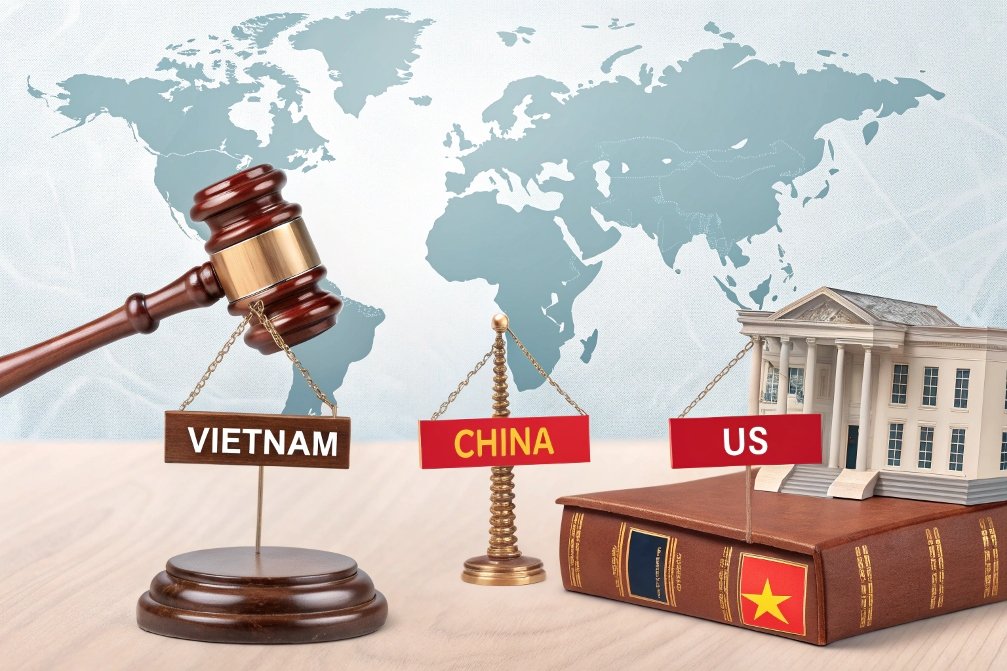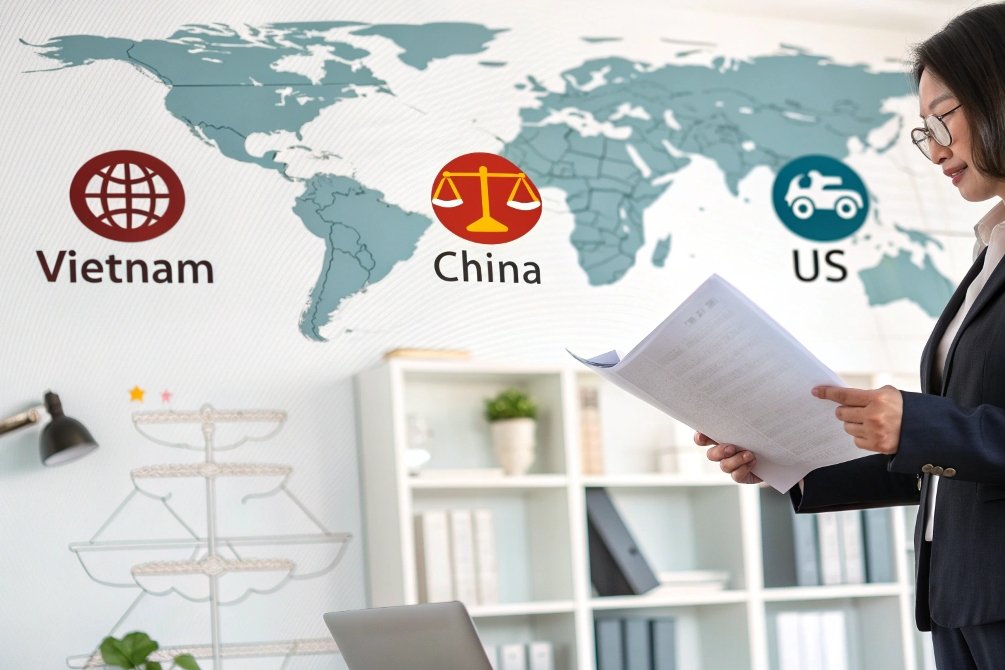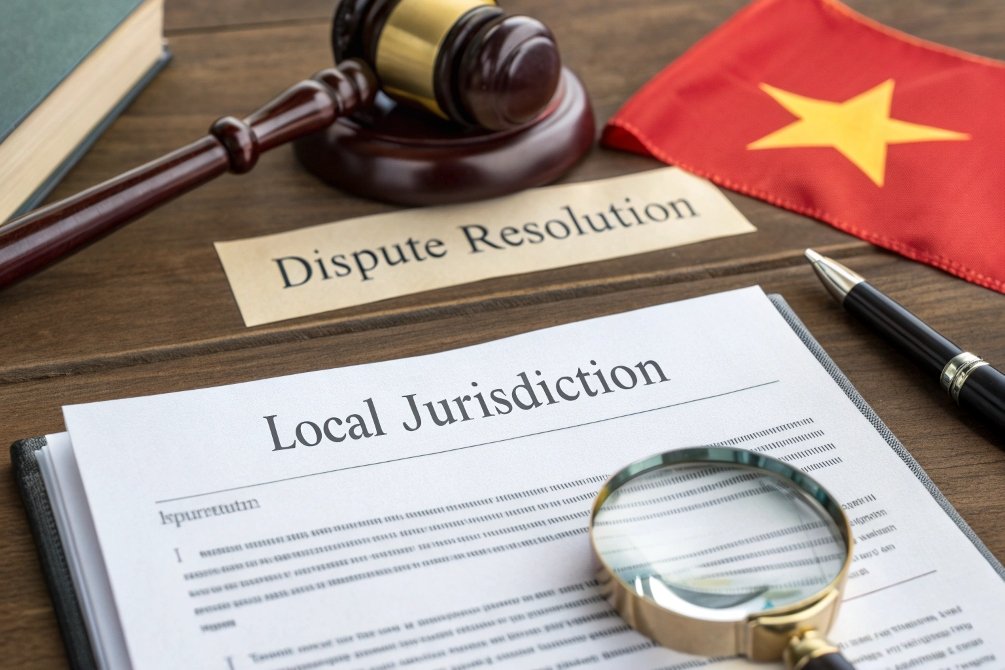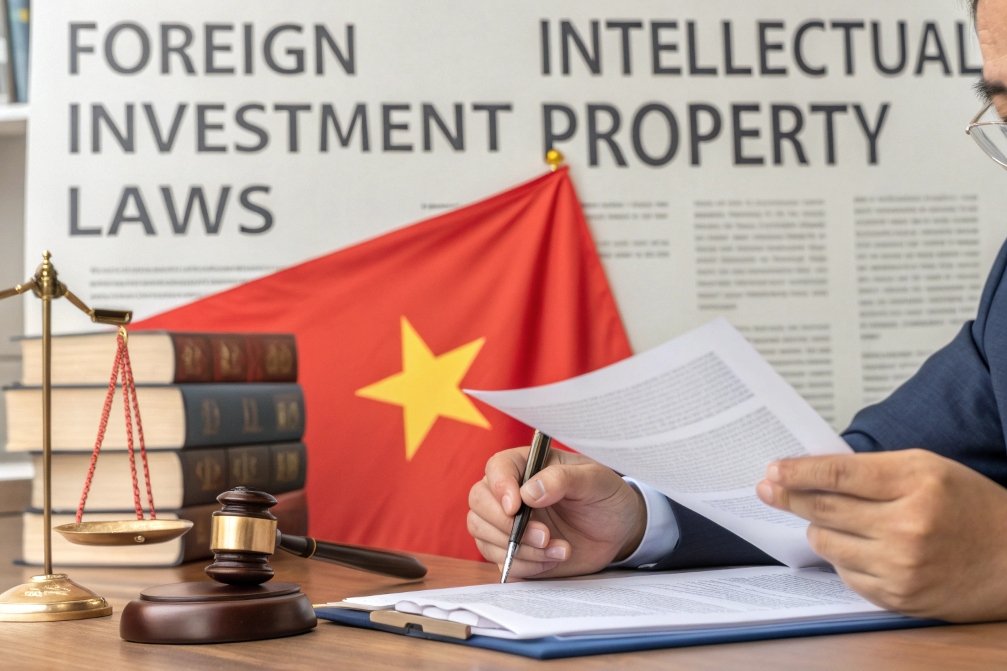
When I’ve navigated contracts in Vietnam, China, and the US, I quickly realized that each country’s legal system has its own complexities and nuances. Understanding these differences is crucial for ensuring that your contracts are enforceable and protect your business interests. Whether you’re expanding operations into Vietnam or moving from China to Vietnam, it’s essential to recognize how the legal systems vary and how to structure contracts accordingly.
Vietnam’s legal system is distinct from both China’s and the US’s, particularly in areas like contract enforcement, dispute resolution, and business regulations. Understanding these differences can help ensure your contracts are legally binding and enforceable.
Let’s explore the key differences between Vietnam, China, and the US legal systems, and how to ensure contract enforceability1 in Vietnam.
What Are the Key Differences Between Vietnam, China, and the US Legal Systems?
The legal system2s in Vietnam, China, and the US are shaped by different historical, cultural, and political influences. While Vietnam’s legal system is influenced by civil law, similar to many European countries, China follows a socialist legal system with an emphasis on state control, and the US adheres to a common law system.
Understanding these differences is key to navigating contracts successfully in each country, especially for foreign businesses entering Vietnam.

Key Differences in Legal Systems
| Legal System Aspect | Vietnam | China | US |
|---|---|---|---|
| Legal Tradition | Civil law system influenced by French law | Socialist law system with state control | Common law system based on case law |
| Contract Law | Based on written codes, such as the Civil Code | Governed by the Contract Law of the People’s Republic of China | Based on precedent and judicial decisions |
| Judicial Independence | Courts have limited independence, as decisions may be influenced by government policies | Courts are controlled by the Communist Party, limiting judicial independence | Courts are independent of political influences |
| Dispute Resolution | Mediation and arbitration are commonly used | Arbitration is preferred; mediation is encouraged | Litigation is common, though alternative dispute resolution3 (ADR) is widely used |
| Enforcement of Foreign Judgments | Enforcement of foreign judgments can be difficult without a reciprocal agreement | Enforces foreign judgments selectively, often complicated | Foreign judgments are generally enforceable with a legal framework in place |
Implications for Contracts
In Vietnam, contracts are primarily governed by written codes, making the legal process more predictable than in China, where judicial decisions are heavily influenced by state policies. Meanwhile, in the US, case law can lead to more flexibility but also creates a potential for unpredictable outcomes. Understanding these frameworks is vital when drafting contracts for enforceability in these countries.
How Can You Ensure Contract Enforceability in Vietnam's Legal System?
Ensuring contract enforceability in Vietnam requires attention to detail during the drafting process. Since Vietnam’s legal system relies heavily on written statutes and codes, it’s critical to ensure that contracts comply with local regulations.
To maximize the enforceability of contracts in Vietnam, ensure that all terms are clear, adhere to local laws, and include dispute resolution clauses that are recognized within the Vietnamese legal system.

Key Steps to Ensure Enforceability
| Step | Action |
|---|---|
| Adhere to Local Laws | Make sure your contract complies with Vietnam’s Civil Code and other relevant regulations, such as the Law on Enterprises or the Law on Investment. |
| Use Clear and Precise Language | Contracts should avoid vague terms or ambiguities, as these can undermine enforceability. Clear definitions are key. |
| Dispute Resolution Clauses | Include a dispute resolution mechanism, such as arbitration or mediation, that is recognized by Vietnamese courts or international bodies. |
| Incorporate Local Jurisdiction | Specify that disputes will be settled under Vietnamese law and in Vietnamese courts or an arbitration body that Vietnam recognizes. |
By ensuring your contract adheres to Vietnamese law, using precise language, and outlining clear dispute resolution steps, you can greatly improve the enforceability of your contract within the Vietnamese legal system.
What Should Foreign Businesses Know About Vietnam's Contract Laws and Regulations?
Foreign businesses entering Vietnam should be aware of several key aspects of Vietnamese contract laws. The regulations are designed to ensure fairness and transparency but can vary significantly from those in other countries, particularly China and the US.
Foreign businesses must understand not only the general principles of contract law but also the specific regulations that apply to foreign entities operating in Vietnam.

Key Considerations for Foreign Businesses
| Aspect | Consideration |
|---|---|
| Foreign Investment Laws | Foreign businesses must comply with Vietnam’s foreign investment laws, including regulations on joint ventures and wholly owned subsidiaries. |
| Ownership and Control | In certain sectors, foreign businesses may be required to partner with local firms or meet other restrictions regarding ownership. |
| Intellectual Property (IP) | Vietnam provides protections for intellectual property but foreign businesses must register IP locally to ensure protection. |
| Tax and Regulatory Compliance | Foreign businesses must comply with local tax laws and regulations, including VAT and income taxes, as well as the various regulatory standards for manufacturing and products. |
Legal Implications for Foreign Businesses
Foreign businesses must carefully navigate Vietnam’s legal landscape to ensure compliance with local regulations. Not doing so can result in costly penalties, delays, or even the cancellation of business licenses. Therefore, having local legal expertise is crucial when entering the Vietnamese market.
Conclusion
Vietnam’s legal system differs significantly from those in China and the US, particularly when it comes to contract law and enforcement. Understanding these differences and ensuring that contracts are clear, compliant with local regulations, and include strong dispute resolution clauses are essential steps for ensuring enforceability in Vietnam. Foreign businesses should take time to familiarize themselves with local laws, use local legal counsel, and ensure that all agreements are legally sound to protect their interests in the Vietnamese market.
-
Explore this resource to understand the essential steps for making your contracts enforceable in Vietnam, ensuring your business interests are protected. ↩
-
This link will provide a comprehensive overview of the differences in legal systems, crucial for navigating contracts in these countries. ↩
-
Understanding dispute resolution methods is vital for effective contract management; this resource will clarify the options available in Vietnam. ↩




